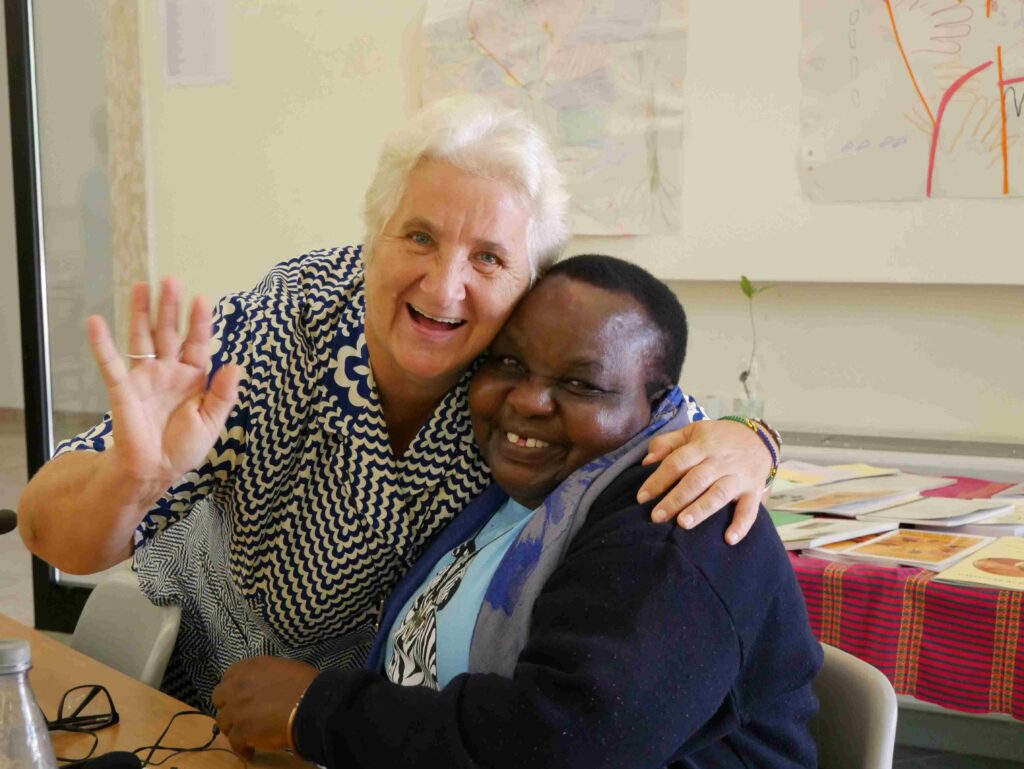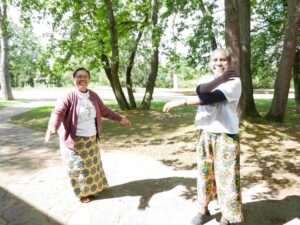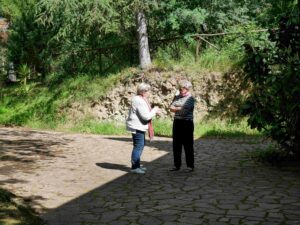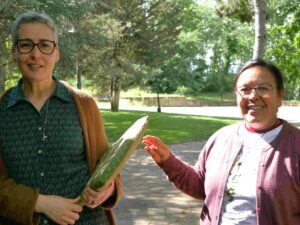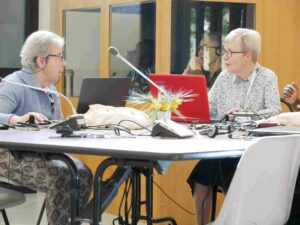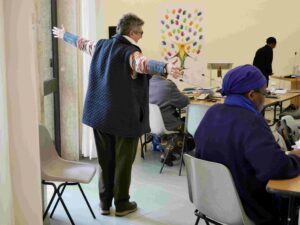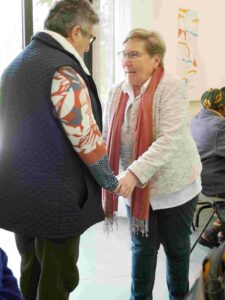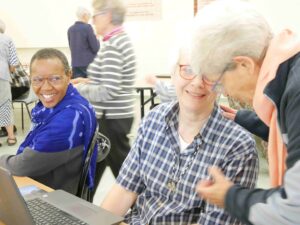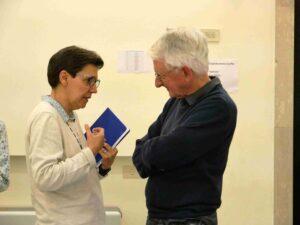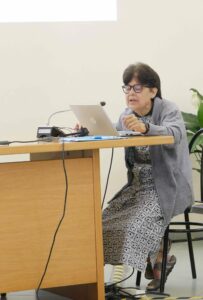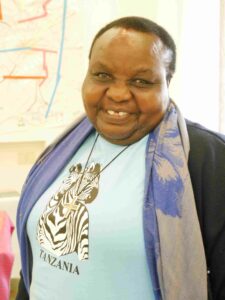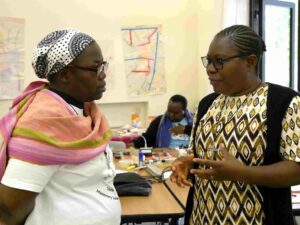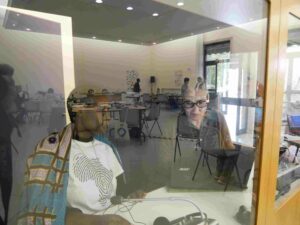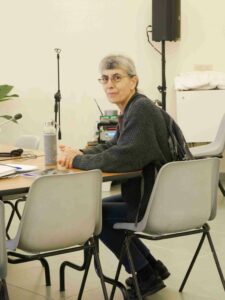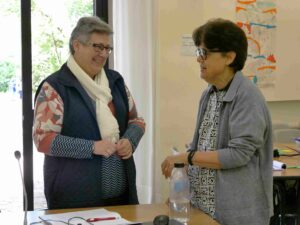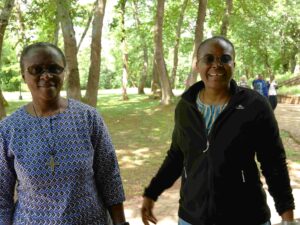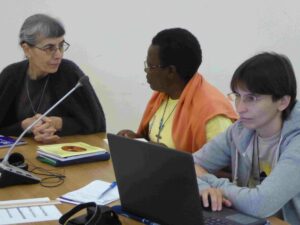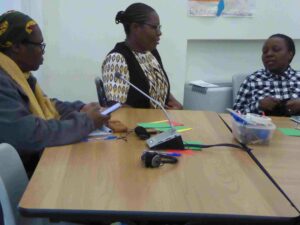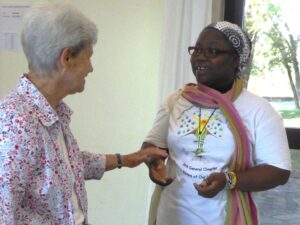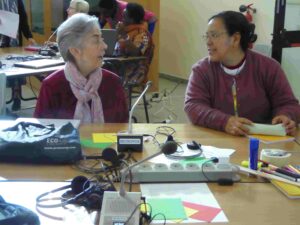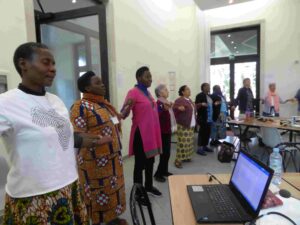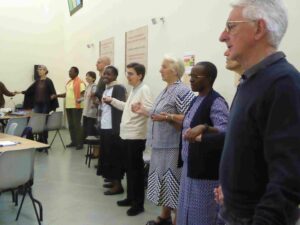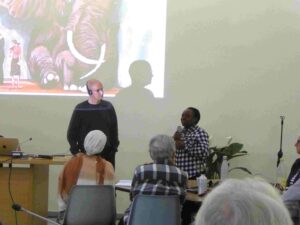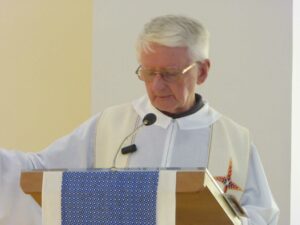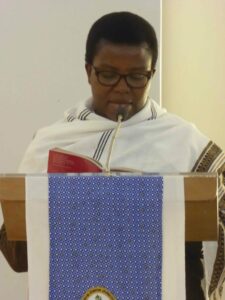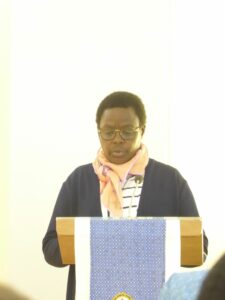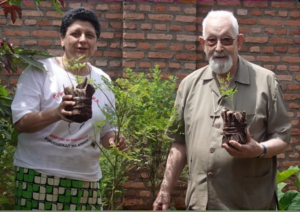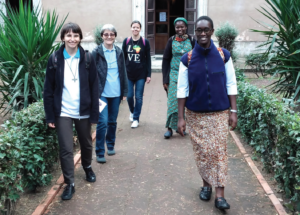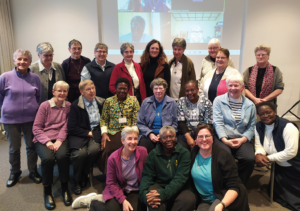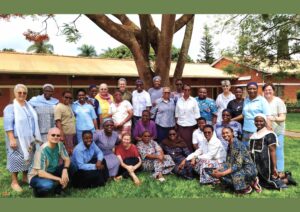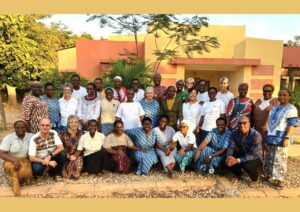Morning Prayer was centred around being clay in the hands of the master, letting ourselves be moulded and shaped in ways that will enable us to respond to the needs of those to whom He will send us. He has chosen us even though we are broken and vulnerable, so that we pour ourselves out to others as He pours himself into us.
How to liberate our positive power
We thank the Lord for our experiences during which our inner space is opening up to transformation, for us and for all of humanity. The Holy Spirit with our participation, is shifting our awareness and creating a new narrative in us.
If we haven’t experienced or don’t trust our God-given “power within”, we are either afraid of power or we exert too much of it over others. Enduring structures of “power over”, like patriarchy, white supremacy, and rigid capitalism, have limited most individuals’ power for so long that it is difficult to imagine another way. Only very gradually does human consciousness come to a selfless use of power, sharing power. Good power is revealed in “growth hierarchies,” which help people actualize their potential; and these are inspirational. This positive power or “growth hierarchies” create an environment in which people find meaning, purpose, identity and are inspired to be and do their best. Bad power consists of “domination hierarchies” in which power is used merely to protect, maintain, and promote oneself and one’s group at the expense of others. Hierarchies are not inherently bad, but if we have not done our inner spiritual work, they are very dangerous for ourselves and for others.
A prime idea of the Bible, from Genesis to Revelation, is its very straightforward critique of misuses of power. From the very beginning, the Bible undercuts the power of domination and teaches us another kind of power: powerlessness itself. God uses unlikely figures who in one way or another are always inept, unprepared and incapable…that is, powerless in some way. In the Bible, the bottom, the edge, or the outside is the privileged spiritual position. This is why the Bible is revolutionary and even subversive. The so-called ‘little ones’ or the ‘poor in spirit’ as Jesus calls them, are the only teachable and ‘growable’ ones according to him. Powerlessness seems to be God’s starting place. Until we admit that we are powerless, real power will not be recognized, accepted, or even sought”. (Richard Rohr).
Exploring “power over”, that can negate, oppress or paralyze an individual or a system, the Co-facilitators, offered the thoughts and insights of C. Jung in which he gives depth to the ways in which, we interiorize many stories. Some of them act as distorting mirrors, giving us a twisted image of our own identity. Often the most distorted stories are told to us by those who are closest to us.
Jung referred to this as “personal myth” a constellation of beliefs, feelings, images, and rules—operating largely outside of conscious awareness—that interprets sensations, constructs new explanations, and directs behaviour.
The healing stories that we interiorise connect us to who we are authentically. Sorting through the messages and stories received about our lives, to get to the stories that are true and life-giving takes energy and time and involves accepting parts of our own story that we might find difficult. We might have to face feelings of shame, loneliness, fear, or pain, and come to terms with our being average and our being unique. It may well require us to cast off a lot of things and stories that others have dumped on us, and that we have dumped on ourselves. The “life myth” describes a patterning for life-long personal development… We can decide to work with a life myth consciously and creatively instead of being unconsciously propelled by it. We understand who we really are through knowing our deep story, or “personal myth.” The organizational myth like the personal one is not obvious, and it may require effort and insight.
The Metaphor “elephant in the room”, carried the day. The Co – Facilitators, Yago and Selina, defined the “elephant in the room,” a major problem, controversial issue or difficult situation which is obviously present but is avoided as a subject for discussion. The energy of the elephant in the room can paralyse any organization and ignoring the elephant creates a threat in the brain, while acknowledging the upset settles the brain. Consequently, it’s better to recognize it and calmly provide a way to address it and move on.
Sr. Carmen Sammut then presented the analysis of the responses to the MSOLA structures survey made by Nicole Moran at the request of the General Council to which a great number of sisters responded. After this presentation there was a reflection around structures and relationships.
As relationships and the world are both aspects of the same community process, we looked at our reality and the process we need to go through to face the elephant in the room, in the MSOLA structures, in order to change our perspectives and shift for their real transformation.
To be able to walk without fear we need to face the resistance to change and know that we are facing a machinery present in the Church and in the World. A sister gave witness of her transformative experience, her becoming aware of the impact that certain aspects of her culture had in her behaviour and how with the help of a coach she transformed that negative force into a personal power to love in an appropriate manner. Through her experience we saw the process of personal transformation: taking personal responsibility, accepting care and accompaniment, living interconnectedness instead of co-dependency, taking time for discernment, acknowledging flaws, taking major decisions, healing and reconciliation and asking for pardon. Seeing the freedom that comes from saying what you have to say helped the group to progress towards transformation.
After the sharing on structures the community-groups worked on the structures, listening deeply to spiritual conversations (keeping silent while each person speaks, followed by a silence.) When the first round is over, the 2nd round starts sharing what is meaningful for her in what she has heard while the others listen in silence. When the 2nd round finishes, a discussion can take place.
In his final word Fr. Dave reminded us that today we have been speaking at two levels: change of structures and at the deeper level: transformation.
The morning shared experience showed us that Christ working through coaches helped the sister to stand upright, without looking down at anybody. This is the Gospel. This is what Jesus came to do, especially in his relationships with women. He allowed women to stand upright, setting down the burdens they were carrying. You, my sisters, are women apostles liberated by God, helping your brothers and sisters to stand upright.


